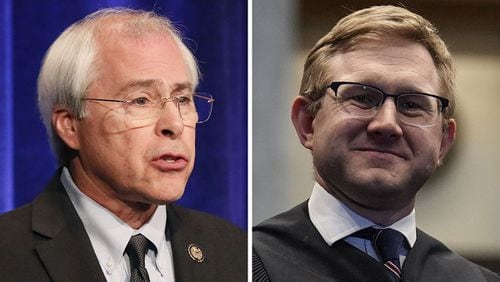Charges: Grand juries hand up indictments, which are formal charges of criminal misconduct. As opposed to a trial jury, which must find someone guilty beyond a reasonable doubt, a grand jury just needs to find probable cause — having more evidence for than against — to indict someone for an alleged crime. Grand juries often hear multiple cases in a single day.
By the numbers: Grand juries are composed of 23 people. (Sometimes alternate jurors are selected as well.) When a grand jury meets, there must be a quorum of at last 16 members for it to conduct its business. A minimum of a dozen votes are needed for an approval.
Eligibility: To serve, a person has to have lived at least six months in the county in which the grand jury is convened and be at least 18 years old. People who have been convicted of a felony and not had their civil rights restored cannot serve on grand juries. Anyone who holds an elected office in state or local government or who has held such an office within the past two years is also ineligible to serve.
Meetings: Grand jury meetings are held in private. Typically, a prosecutor from the district attorney’s office presents a case through testimony from a law enforcement officer as a witness. When grand juries deliberate and vote on whether to hand up an indictment, no one besides the grand jurors are allowed inside the room.
Service: A grand jury sits for what is called a term of court. In rural counties, that can be for several months. In Fulton County, a term of court is two months in duration. Also in Fulton, two grand juries are selected, with one meeting on Mondays and Tuesdays, the other on Thursdays and Fridays.
Nothing special: Last year, at the request of Fulton County District Attorney Fani Willis, a special purpose grand jury was convened to use its subpoena power to hear testimony and examine documents in the investigation of the attempted overthrow of the 2020 presidential election. The special grand jury heard from almost 75 witnesses and issued a final report, only a part of which has been made public and which recommended multiple people be indicted. But unlike a regular grand jury, the special grand jury cannot issue criminal indictments.
About the Author
Credit: AJC, AP







